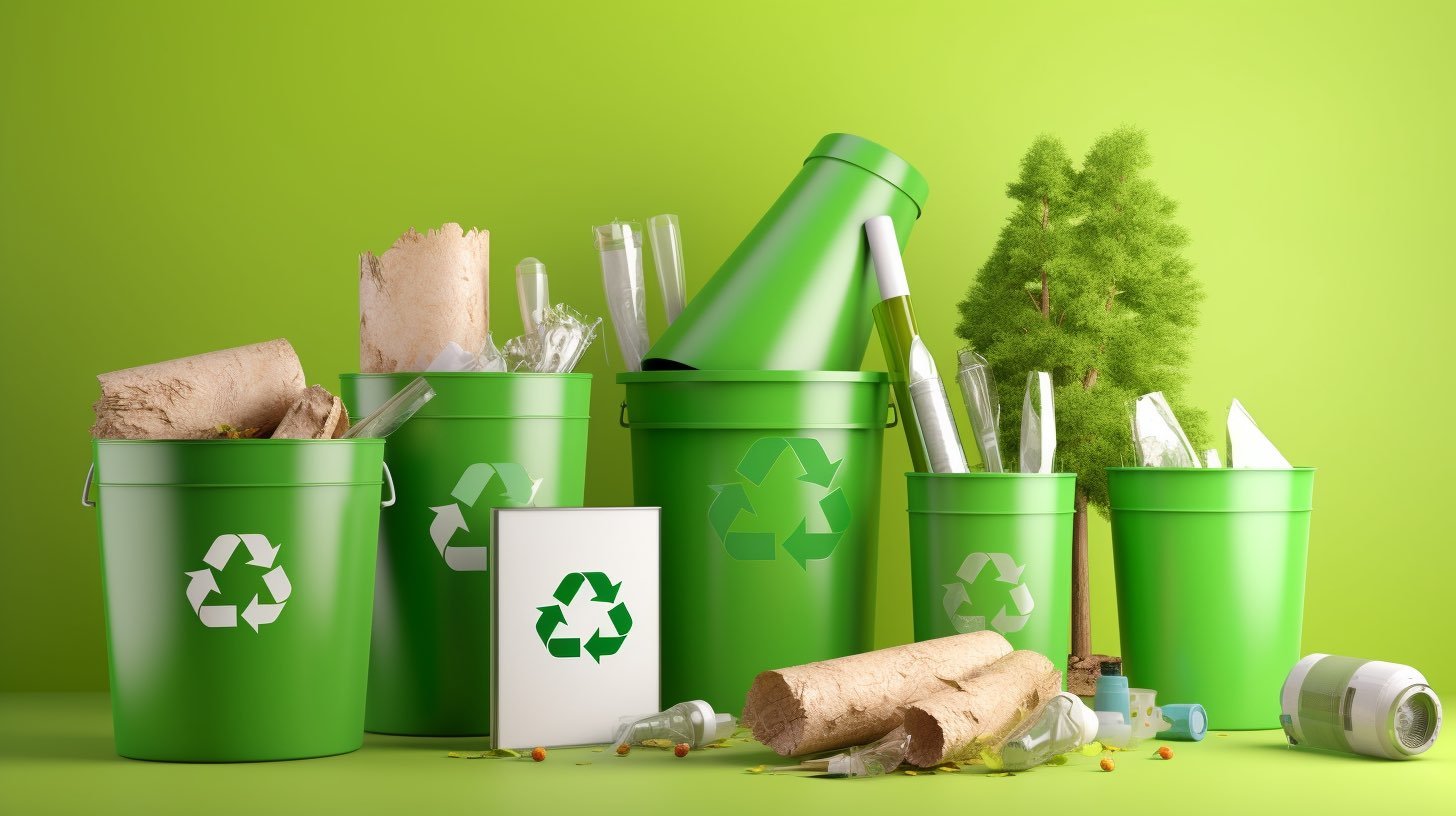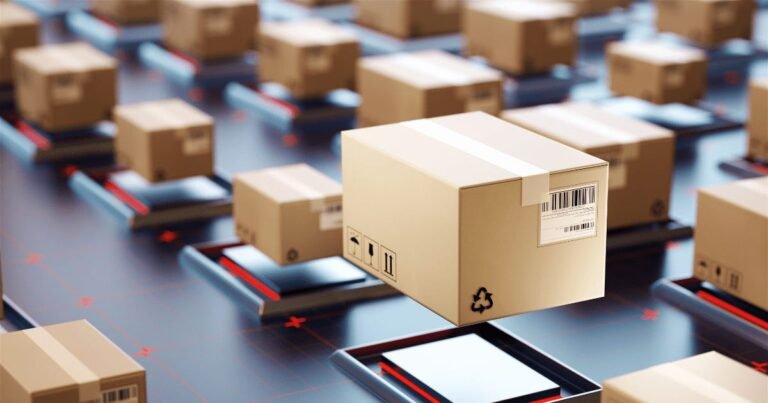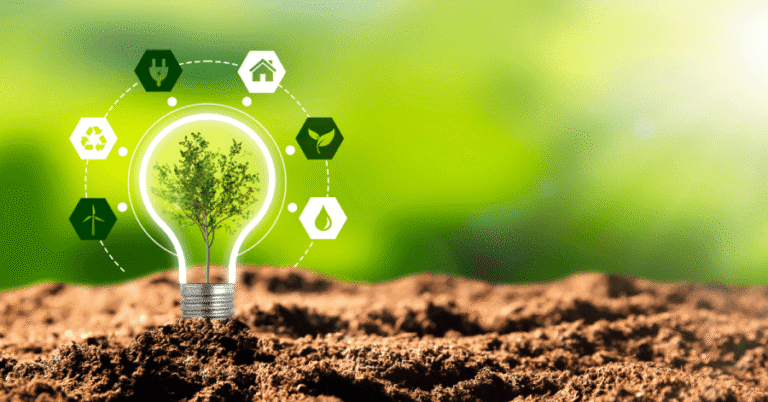
With population growth and urbanization, waste management has become one of the biggest environmental challenges. Traditional waste disposal technologies, such as landfilling and incineration, are no longer suitable for the large amounts of waste and the damage they cause to the environment. Incinerators emit toxic substances, while landfills emit methane, a potent greenhouse gas. Climate change, pollution, and resource depletion are growing concerns. As a result, the need for sustainable, efficient, and environmentally friendly waste management solutions is greater than ever. Green technologies meet this need through new waste reduction, recycling, and treatment techniques.
Using Green Technology to Reduce Waste
Green technology in waste management focuses on minimizing waste and thereby reducing waste production. Greentech solutions help organizations and households reduce waste through smarter use and product design. Manufacturers use biodegradable materials and less material. On-demand production using 3D printing reduces production waste. As consumers become more cautious in their purchasing behavior, packaging-free, recyclable, and reusable products are becoming increasingly popular. These changes reduce waste at the source and ease the burden on waste management systems.
Innovative Recycling Technology for Advanced Technology
Recycling is essential to waste management, and green technologies are improving the efficiency and effectiveness of recycling. Artificial intelligence-based robots and sensor-based sorting systems can identify and separate items more accurately than ever before. These systems sort recyclable materials and remove contaminants by distinguishing between plastics, metals, glass, and paper. Advances in chemical recycling technologies are also breaking down non-recyclable polymers. These developments are increasing recycling rates, recovering and reusing valuable materials such as metals and plastics, and reducing the use of raw materials and the environmental impact of production.
Sustainable Waste-to-energy
Green technology is also transforming waste management through waste-to-energy (WTE) systems. These technologies generate renewable energy from non-recyclable waste, providing a sustainable option for waste management. Through anaerobic digestion, gasification, and pyrolysis, organic waste can be converted into biogas or biofuels, which can generate electricity or heat. These programs reduce waste and greenhouse gas emissions in landfills and provide energy to homes, businesses, and communities. These devices can also minimize the use of fossil fuels and promote the development of renewable energy.
Smart Waste Management for Greater Efficiency
Smart waste management systems that use digital technologies improve efficiency and reduce environmental impact. Sensors, data analytics, and the Internet of Things are being used to develop ‘smart bins’ that monitor waste levels in real time and alert waste collectors when the bin is full. This optimizes collection routes and reduces fuel and carbon emissions by eliminating unnecessary trips. Smart waste management systems can map waste production patterns in large urban areas and help municipalities develop waste reduction plans. By educating and rewarding individuals and businesses for efficient recycling and waste management, these systems strengthen waste separation at the source.
Circular Economy and Green Waste Management
The circular economy is another important concept in green waste management. Compared to the linear economy, which assumes ‘take, make, throw away,’ the circular economy encourages reuse, repair, and recycling to reduce waste. Green technologies help businesses shorten the life cycle of products and reduce the use of raw materials and emissions during production. Some organizations use closed-loop processes to return, repair, and resell unwanted products, thereby reducing waste and the use of resources. Industrial symbiosis, where one company’s waste becomes another’s raw material, also makes waste management more sustainable and circular.
Composting and Organic Waste Management
Organic waste processing is another green technology advancement in waste management. The natural process of composting organic waste into nutrient-rich compost has been practiced for generations, but technology is improving the process. In-vessel composters and aerobic digesters speed up the composting process, reduce odors, and prevent contamination. These systems allow cities, businesses, and households to recycle food scraps and yard waste into compost, which enriches the soil. Smart technologies such as humidity and temperature sensors improve composting conditions and efficiency.
Electronic Waste Management Solutions
E-waste is one of the fastest-growing waste streams in the world, and its proper disposal is becoming increasingly important. Green technology is tackling the problem of e-waste by recycling more efficiently and using sustainable materials. Companies are designing gadgets that are recyclable, using fewer hazardous components, and are easier to disassemble. Hydrometallurgical methods and improved shredders are also making e-waste recycling easier by recovering gold, silver, and copper. Green technology reduces pollution and saves resources by processing and recycling electronic waste.
Education and Public Involvement in Green Waste Management
Public participation and education are essential for the proper functioning of a green waste management system. Green waste management solutions involve individuals and businesses sorting recyclable materials and reducing waste. Governments, NGOs, and businesses use social media to educate the public about sustainable waste management and emerging technologies. Mobile apps can make green waste management easier by helping users find recycling locations, track waste reduction, and learn about eco-friendly habits. Public education and communication also encourage communities to embrace green technologies and create a sustainable future.
Conclusion
Modern waste management solutions use green technologies to reduce, reuse, and recycle waste more efficiently than ever before. The latest technologies in sorting, recycling, energy generation, and composting make waste management more sustainable and efficient. The concept of the circular economy also turns waste into resources. For a more sustainable future, green waste management technologies reduce environmental impact, conserve resources, and create a cleaner, healthier planet for future generations.
FAQs
1. What are green waste management technologies?
Green waste management technologies promote waste reduction, recycling, energy recovery, and sustainable disposal.
2. How does waste-to-energy technology help nature?
Waste-to-energy technology converts non-recyclable waste into renewable energy, reducing landfill use, greenhouse gas emissions, and fossil fuel consumption.
3. What is a smart waste management system?
Sensors and data analytics optimize waste collection, fuel consumption, waste separation, and recycling in smart waste management systems.
4. How can green technology handle e-waste?
Green technology contributes to e-waste management by improving recycling, encouraging recyclable electronic devices, and recovering valuable metals from obsolete electronics.
5. How can individuals contribute to sustainable waste management?
People can do their part by reducing waste, recycling, composting, and using sustainable products and technologies.





